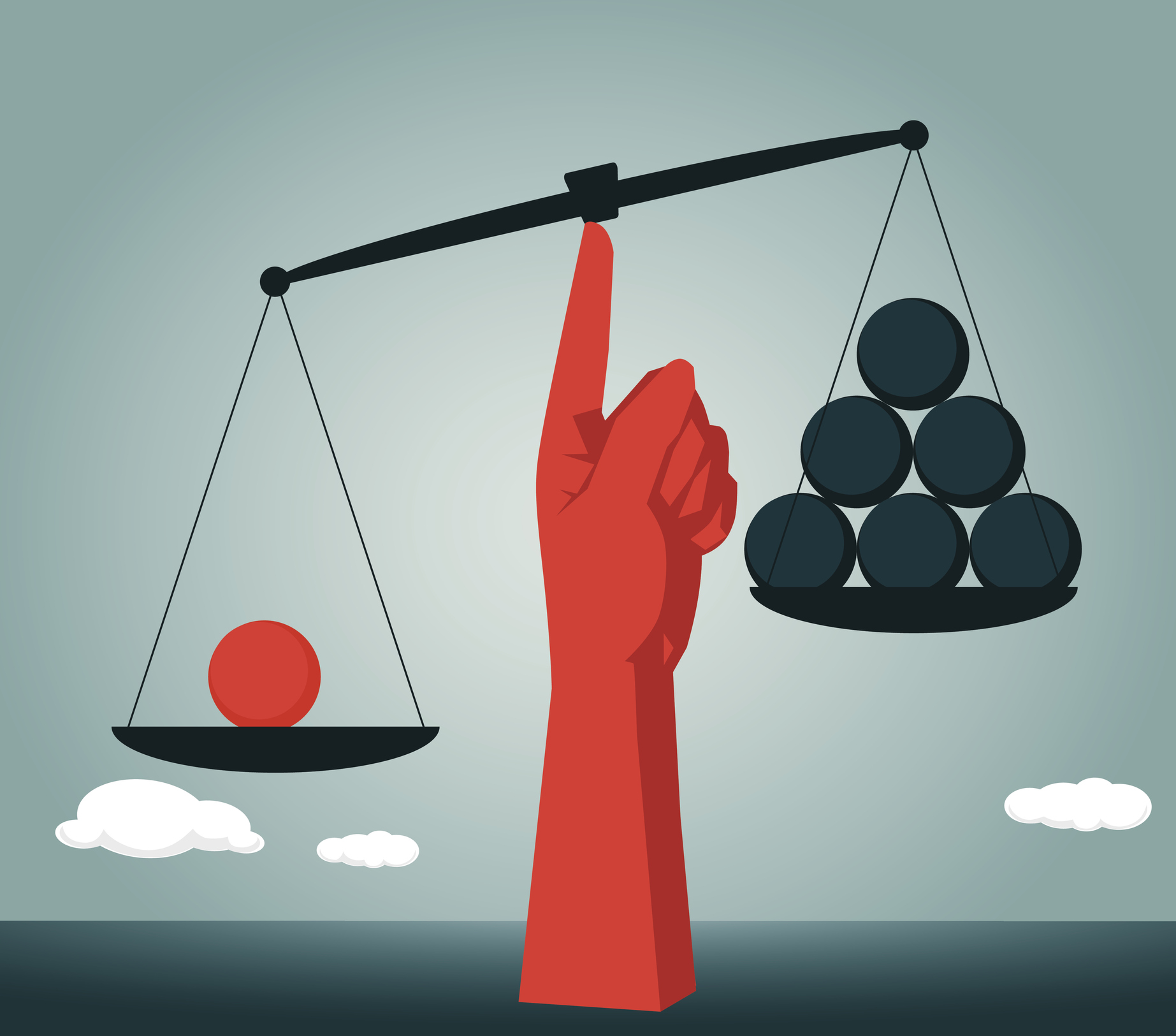Summary: Vice President Kamala Harris claims that the world has seen a dramatic rise in inequality. But many indicators of human well-being, such as access to clean water, internet, and food, have improved significantly over time. Moreover, inequality is not necessarily a bad thing, as it reflects the uneven but positive progress of humanity.
Vice President Kamala Harris claimed, in the wake of the infrastructure bill’s recent passage, that the world has seen “a dramatic rise in inequality.”
She continued, “Why is it that 1 in 4 people in our world lack access to clean drinking water at home? Why is it that 1 in 3 women in the world experience sexual or physical violence during her lifetime? Why is it that only half of the world has access to the internet? Why have we allowed so many of the world’s children to go hungry when we know that we produce enough food to feed the entire world?”
With all due respect to the vice president, the answers to those questions reveal enormous progress.
Unsafe water, once a nearly universal hazard, is an increasingly rare misfortune. Today, over 90 percent of people have access to improved drinking water. As recently as 1990, that figure was 80 percent. Data from the University of Washington show that, back then, the death rate related to unsafe water sources was 42 per 100,000 people. Today, it is less than 18 per 100,000 people. Put differently, in 1990, almost 4 percent of global deaths could be attributed to unsafe water. That has since halved to less than 2 percent. If this positive trend continues, everyone on the planet could soon enjoy clean drinking water.
Reliable data about violence against women are sometimes difficult to come by. That said, laudable progress in the treatment of women has occurred. Tolerance of sexual harassment and violence has certainly decreased in the United States. There was a time when forced marriages at young ages were common worldwide, and marital rape was legal practically everywhere. As recently as the 1960s, women married, on average, at 16 in Mali and Burkina Faso and 17 in Ghana. Today, that has risen to 18, 20, and 23, respectively. Approval of wife-beating is now rare the world over.
Why is it that only half of the world has access to the Internet? Likely because the remarkable innovation is so young. It’s hard to imagine the world without the Internet, but information was once scarce, and inequality of information access was abominable. Today, anyone with a smartphone can read troves of wisdom that would make the scholars of ancient Alexandria mad with envy.
Given that the World Wide Web has only been publicly available since 1991, the explosive growth in global Internet access is wondrous. Less than 9 percent of people used the Internet in 2000, and less than 35 percent of people used it in 2010. Today, around half the world and three-quarters of Americans use the Internet, but that statistic may underestimate Internet availability. After all, some people have no desire to use the Internet — many elderly people fall into this category — but could easily gain access if they wanted.
In sub-Saharan Africa, the world’s poorest region, smartphones are rapidly falling in price. While today just over a third of sub-Saharan Africans have a smartphone, that number is predicted to rise to 67 percent by 2025, further equalizing access to knowledge.
Harris is correct that humanity produces enough food. Farmers produce enough to theoretically supply each person on the planet with nearly 3,000 calories each day, far more than the standard recommendation of around 2,000 calories. In the early 1950s, over 50 countries surveyed by the U.N. had a food supply of fewer than 2,000 calories per person per day. By 2017, only two countries met that definition.
Famines no longer occur except in cases of war, natural disaster, or other market-disrupting instability. The countries with some of the highest rates of childhood malnutrition are Burundi, Niger, and the Central African Republic (CAR). These countries are unstable and some of the least free places on Earth, particularly economically.
Burundi has seen a recent rise in torture by state agents, Niger is contending with waves of violence by radical militants, and the CAR is in such a state of violent chaos that their presidential guards recently opened fire on U.N. peacekeepers. But everywhere that markets can operate, hunger has become rarer, resulting in a global decline in childhood malnutrition.
Inequality has declined in many ways. But when thinking about inequality, it is essential to remember that humanity was once almost universally poor, hungry, and miserable. In a state of widespread deprivation, any progress can create inequality. But equality of misery isn’t desirable, making Harris’s claim about a rise in global inequality highly misleading.
This article was originally published in National Review.

